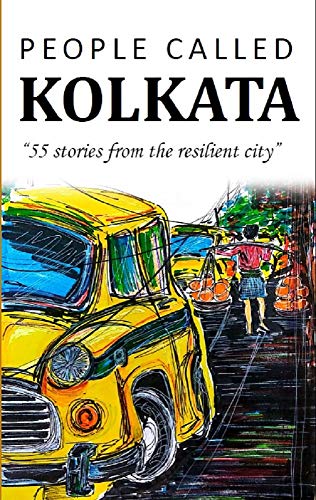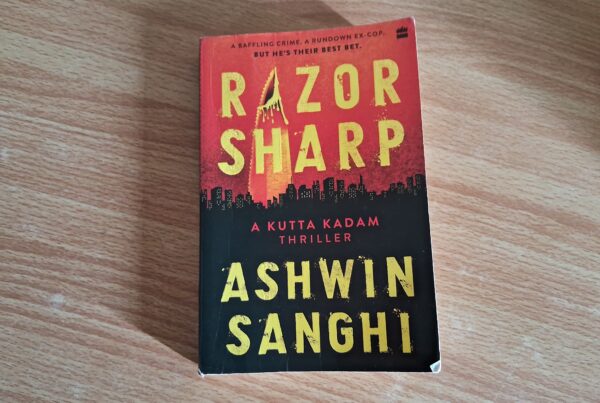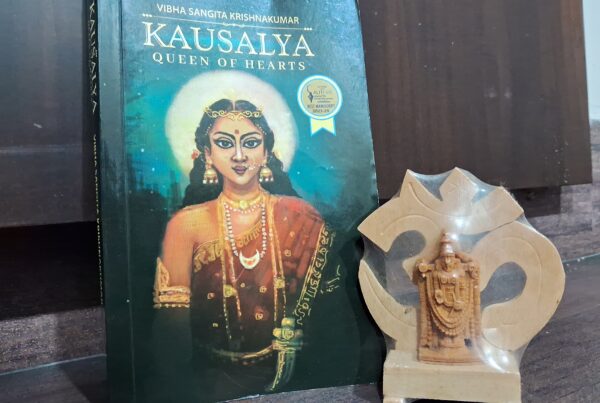Title –
People called Kolkata
Curated by –
Kamalika Bose
No. of pages –
302
Genre –
Non-fiction
The first in the ‘People Called’ series, the book tells us fifty-five stories about the ‘City of Joy’. People from all walks of life get nostalgic, as they pour their hearts out and revel in the dichotomous delight of being a Kolkatan.
Review:
A former Prime Minister once dismissed Calcutta as ‘a dying city’. A journalist wrote the foreword for this book and eulogised about the city with a soul. A great city is not a collection of buildings. It draws its greatness from the people who inhabit it.
Calcutta. Kolkata. A rose by any other name would smell as sweet, so said the bard. Likewise, the capital of West Bengal by its old or new name would be as great.
The book is a sheer delight, for it showcases the cosmopolitan and magnanimity of the city and its dwellers. Ask Tarun Kumar Shaw, who delivered rare books to clients long before Amazon and Flipkart were in vogue. Originally from Kashmir, the man has made Kolkata his home, and his fluency in Bengali confounds the native speakers. Likewise, Ram Singh, the personal bodyguard of Superstar Prosenjit Chatterjee, swears undying loyalty to the city that provided him his livelihood.
Every coin has two sides. Taxi driver Ram Chandra Yadav admits there’s something good and bad in Kolkata, but is happy to ply his vehicles until retirement, after which he would return to his native village in Bihar.
While there’s no doubt about the secular nature of this city, I was surprised to find a mention of Goan bakers. Run by three generations of women entrepreneurs, Saldanha Bakery has crafted a soulful presentation of gastronomic delights for almost a century now. On the other side of the religious spectrum, Bidyut Halder has devoted his life to Goddess Kali and believes that Ma keeps the fabric of Kalighat intact.
Kolkata is not new to paradox. Uday Panday, originally from UP, ekes out a living in front of Forum Mall predicting the future using an array of tarots and a parrot. Some unfortunate vendors, like the ones affected during the infamous Operation Sunshine, still struggle. But the thought of deserting their city has never struck them.
As a Kolkata Tamilian, I went on a trip down memory lane. I had a lump in my throat reading about TN Balasubramanian and his efforts in running the South India Club. Now the edifice has given way to a modern café. Nadiram Pramanik offered me a seat in his tram from the pages of the book, as he reminisced about his past as a conductor.
The open-mindedness of the Kolkatans can be gauged by the stories narrated by single women. While there are the obvious comments about marriage and children, most of the women had no issues leading a life without a spouse or a partner.
There’s a saying – if you didn’t find a particular book in College Street, it never existed. However, Kolkata offers not just dust-gathered pages, but also antiques. Shiraz Tanksalwalla is a Parsi dealer, for whom home is always Kolkata. Siddharta Laha still finds solace in the strong odour of paper and paints in a nondescript shop in Lenin Sarani.
The curator has taken pains to introduce the not-so-privileged characters without whom the city is incomplete. The sex workers of Sonagachi had to fight a long-drawn legal battle to celebrate or participate in Durga Puja. While listening to Shoaib Md and his enviable collection of music records, the curator ruminates that our perceptions are always dependent on our station in the world.
Glitzy malls have sprung up now. The city has seen her youth migrating to South India. But somewhere, a certain Mrs. Das looks back at the past with longing, when young men lived in her sprawling Purna Das Road bungalow, as they sought jobs and attended countless interviews. Subir Roy, a retired headmaster, did what many shuddered to do – assist in cremating strangers, despite massive opposition from his family.
The milk of human kindness never runs dry here.
I can go on, but I’ll stop here. The book must be savoured page by page. For a Bengali (or a Kolkatan like me), it’s a nostalgic trip. To those who have never visited Kolkata, here’s a chance to get acquainted with the city.
Kolkata has changed. However, the soul refuses to fly away. People will continue to reside here as long as food, culture, and lyadh thrive. As Modhurima Sinha, the Director of Public Relations at Taj Bengal, says – the average Kolkatan does often come across as a bit of an amateur polymath.
If I have to nitpick, certain typos in the form of printer’s devil marred the reading experience a bit. Sample this – A Halder turns into a Haider, throwing the reader off guard, rendering the narrative unbelievable.
Nevertheless, I recommend this book and rate it 4.5/5 stars.
The book can be purchased from Amazon here




